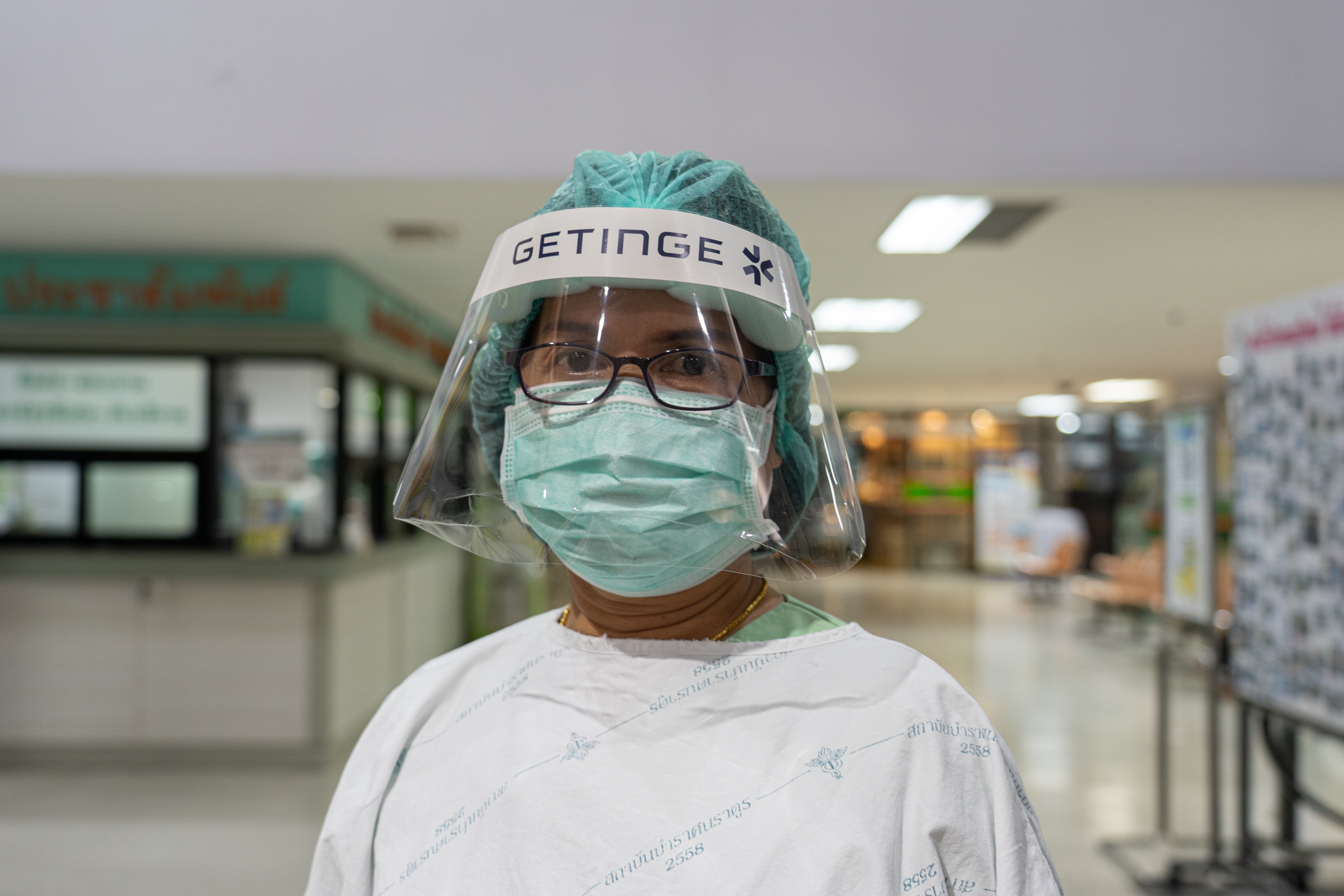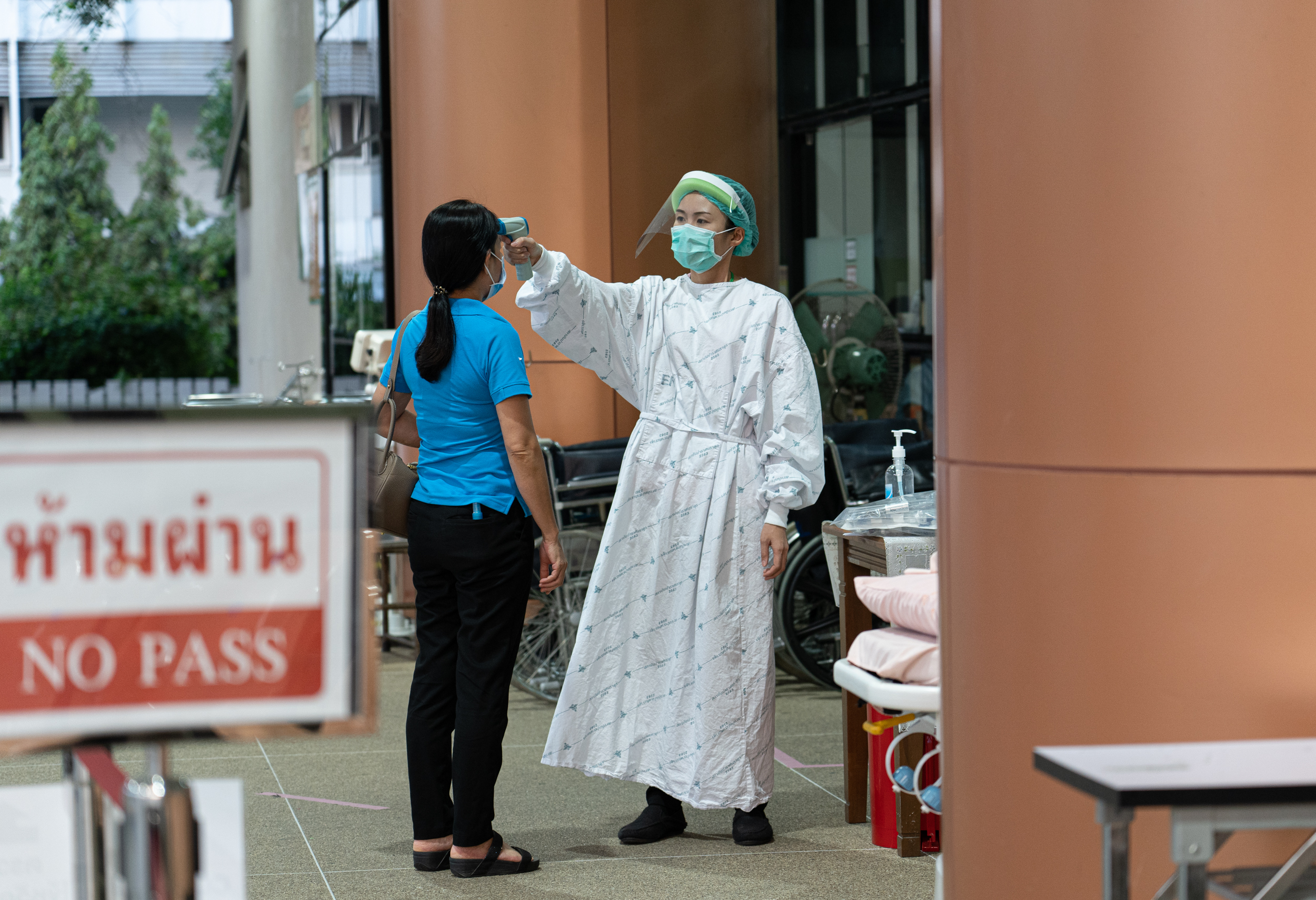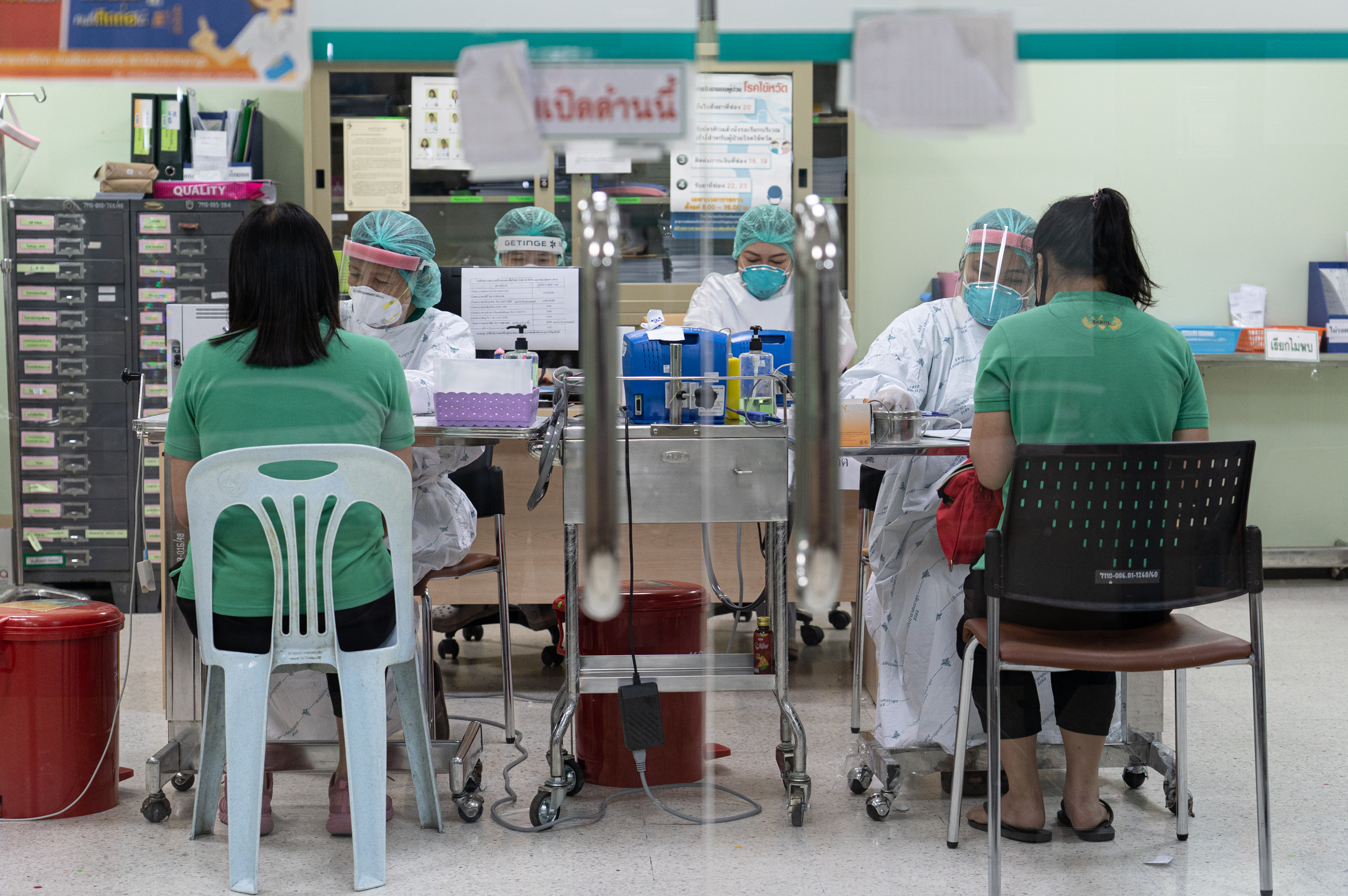อ่าน 100 วันแห่งการทุ่มเท (ภาษาไทย) ได้คลิกที่นี่
While many people are currently #WFH (Work from Home) or #StayAtHome, those in the healthcare profession are working long hours in the fight against the Coronavirus disease 2019 (COVID-19). The World Health Organization (WHO) talked to some Thai healthcare workers about their work, their feelings and what Thai people can do to help protect them.
World Health Organization (WHO) – Nurse Jidapa Sujan was on duty at Bamrasnaradura Infectious Diseases Institute when the phone rang one afternoon.
“It was on 8 January. I was on duty at the Accident & Emergency Department,” recalled Nurse Jidapa of the phone call that led to her first encounter with the Coronavirus disease 2019 (COVID-19). This would later be confirmed as Thailand’s first COVID-19 case.
The caller was seeking the help of her hospital, which specializes in treating patients with highly contagious diseases, to pick up a tourist who had landed in Bangkok with a temperature - a possible sign of a deadly new disease.
“I felt scared,” said Nurse Jidapa, 28. “I had never faced that level of risk before. I was afraid that I would catch it.”
Suttiporn Teruya is the Deputy Director of Nursing Affairs at Bamrasnaradura Infectious Diseases Institute. “Back then the Department of Disease Control, Ministry of Public Health, already knew there was a new contagious disease spreading overseas”, she says. “It was referred to as severe viral pneumonia. But the type and the cause of it were unknown.”
“When we got that phone call, saying there was a case from China, arriving at the airport, if you ask any of the nurses who had to go and collect that patient, they will tell you they felt scared. It was impossible not to, but even at that moment, we were still focused on the job we had to do. We prepared our pick-up plan, team and the highest level of protection equipment.”
After the call Nurse Jidapa put on Personal Protection Equipment, consisting of an overall, N95 mask, goggles, a face shield, a hat, a pair of plastic socks, boots and gloves. Her colleague helped her check that it was all properly in place before she went off with her team in an ambulance. Since that first experience, Nurse Jidapa has picked up patients three or four more times. “Each time, after every pick-up, I monitored my health by taking my temperature twice a day for 14 days,” she added.
We are fighting against infections
As a former Chief of Intensive Care Unit, and now in the capacity as Chief of the Isolation Ward in the Bamrasnaradura Infectious Diseases Institute, Nurse Arom Disthakumpa recalled her 37-year-experience of responding to other contagious diseases in Thailand.
“I’ve never before faced a situation where lots of patients come in like this.
Previously, our institute treated patients with SARS (Severe Acute Respiratory Syndrome), MERS (Middle East Respiratory Syndrome) and Ebola (Ebola virus disease). But only a small number of them. This time our negative pressure rooms are full,” said Nurse Arom.
“This disease is frightening as it is spreading quickly,” added Nurse Arom. “But when I see the patients, I feel sorry for them. That make me want to do my best to serve them.
When asked, if she feels afraid, Nurse Arom replies “No, not really. My institute has enough measures in place. We have negative pressure rooms, we have practised putting on and taking off PPE, and we have drills every year.”
As Deputy Director Suttiporn puts it, “We are fighting against germs”. She says personal protection equipment is the most important equipment to protect healthcare workers. It’s our armour, she says.
Suttiporn says the personal protection equipment needed for health workers at the institute had already been calculated and prepared in advance.
“At the Institute we counted how many pieces of personal protection equipment we used in a day. Initially we had prepared enough for one month. When the disease started to become more widespread, we increased the amount to cover three months, and now we are re-assessing again.”
To stay safe, nurse Jidapa says “we have to assume that all the patients we serve have COVID-19. So we have to protect ourselves, by wearing N95 masks or at the very least, surgical masks.”
Both Nurse Jidapa and Nurse Arom said they want to get the best out of their PPE. Nurse Jidapa said when putting on PPE she and her colleagues will perform their tasks for four hours straight so that they won’t have to change and discard PPE frequently. Nurse Arom said they wanted to use it economically while also ensuring they are safe.
Apart from preparing personal protection equipment, the Deputy Director says healthcare workers at the Institute are also trained in how to put it on and remove it safely. “Everyone knows the size of their own N95 masks, how to wear face shields securely, and we practice removing them, to ensure that we won’t be contaminated.”
Fighting spirit
Over the past 100 days, healthcare workers in Thailand have had to work constantly. Nurse Jidapa said she had taken on more duties, and cancelled her plan to visit her family in the north of Thailand during Songkran. “I told my parents that had to work for the country.”
Her colleague, nurse Khuanjai Monthaisong, talks about what keeps them going. “Everyone has a fighting spirit. Everyone supports each other, and works as a team. My family understands what I’m doing. The biggest encouragement we get is the support of ordinary people, on social media, and from those who come to see us.”
Around the world, COVID-19 has now cost the lives of many healthcare workers. Nurse Arom hopes that as this global event evolves, all healthcare workers in Thailand will continue to be protected, including ongoing provision of sufficient personal protection equipment, better risk payments and life insurance.
Dr Daniel A. Kertesz, the WHO Representative in Thailand, believes the Thai people play the most important role in containing the outbreak. We can protect ourselves and those around us, he says, by strictly following practices such as frequent hand washing, avoiding touching our faces, coughing or sneezing into sleeves, maintaining a distance of 1-2 metres from those around us, and staying at home as much as possible. We can all do our part to end the outbreak, and protect Thailand’s healthcare workers and public health system.
Photo: UN Women/Pathumporn Thongking
Sharing COVID-19 experiences: The Thailand response
